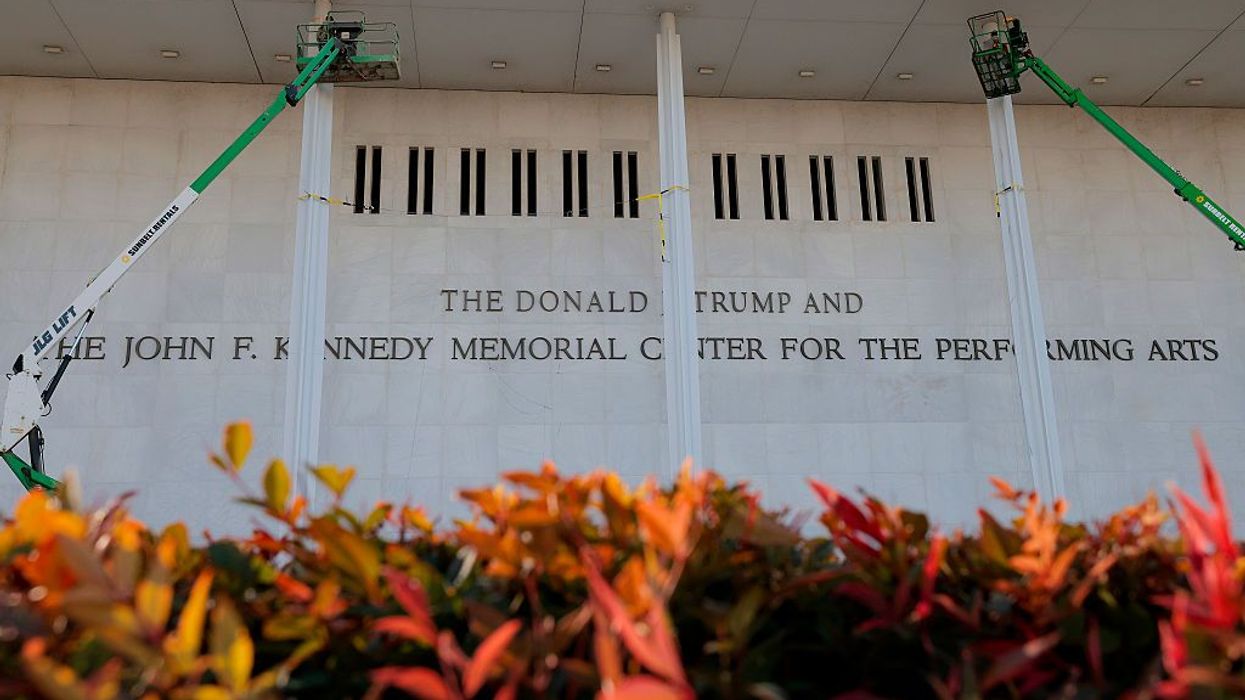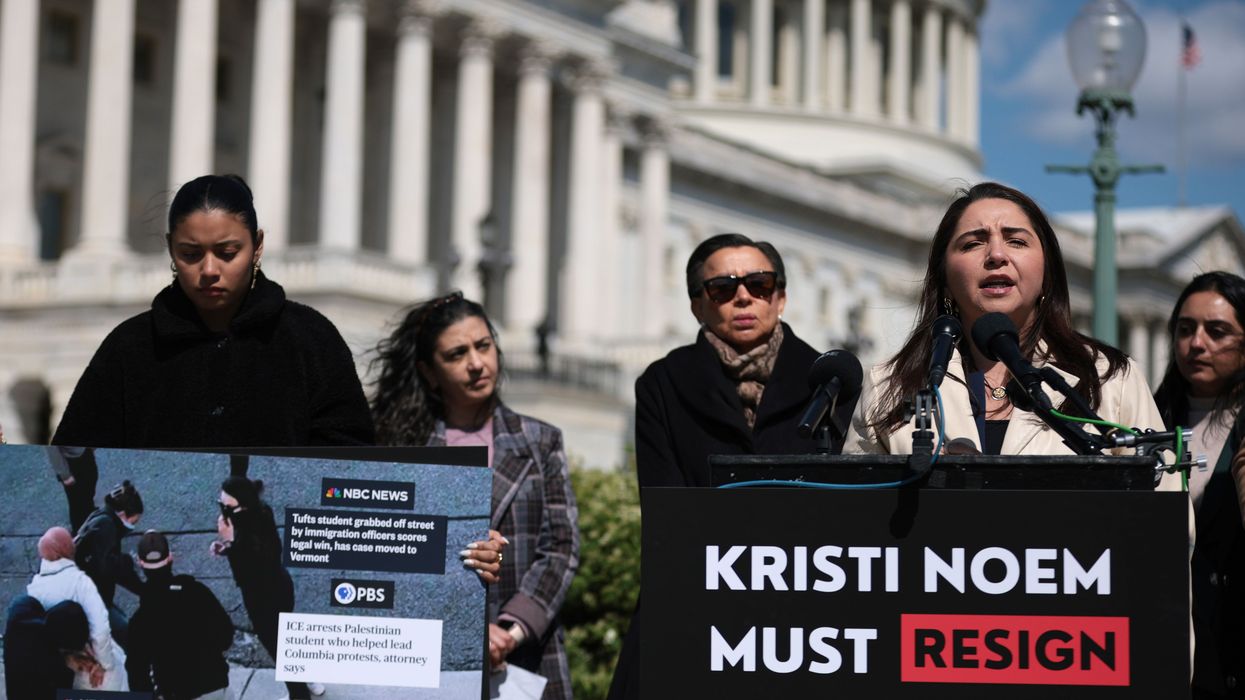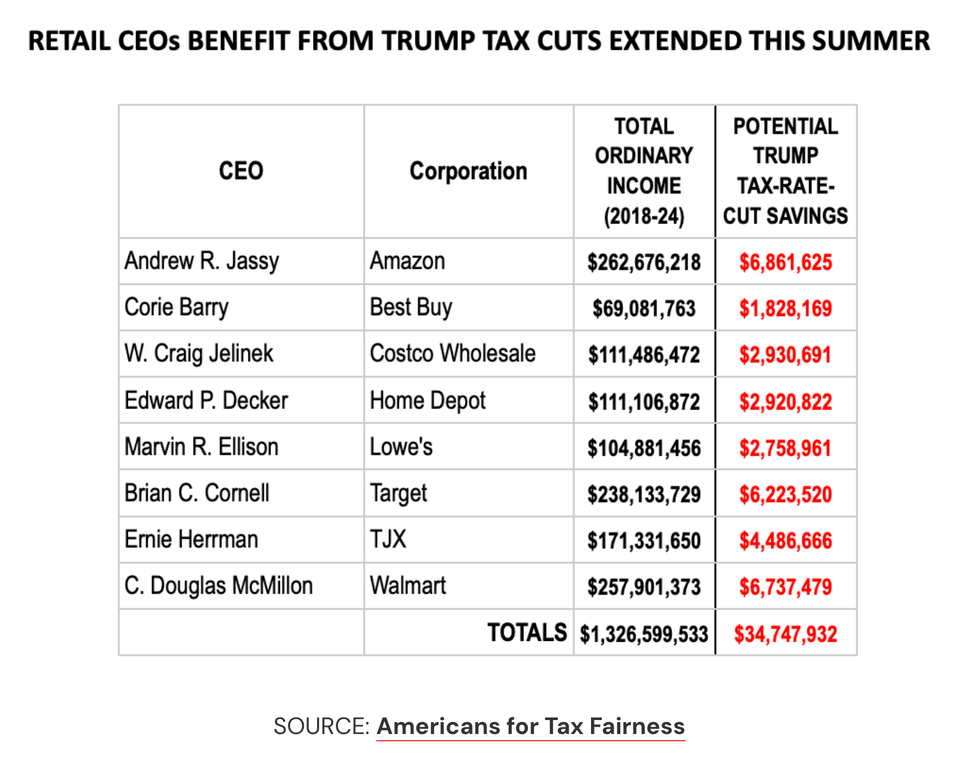June, 25 2013, 12:24pm EDT

SCOTUS Guts Key Provision in Voting Rights Act, Congress Must Act to Fix
The Supreme Court's activist decision striking down a section of the Voting Rights Act that dictates which jurisdictions need federal approval before changing their voting laws threatens to make second-class citizens out of millions of Americans and must be answered with quick, bipartisan action on Capitol Hill, Common Cause said today.
WASHINGTON
The Supreme Court's activist decision striking down a section of the Voting Rights Act that dictates which jurisdictions need federal approval before changing their voting laws threatens to make second-class citizens out of millions of Americans and must be answered with quick, bipartisan action on Capitol Hill, Common Cause said today.
"The only good news in this ruling is that Congress has the power to fix it, and fix it fast," said Jenny Flanagan, Common Cause's director of voting and elections. "We all recognize the paralysis on Capitol Hill. But the extraordinary bipartisan action that reauthorized this legislation in 2006 proves it can be done. "
"It should not be difficult, or controversial, to satisfy the constitutional requirements laid down by the court AND provide needed federal oversight of state laws that threaten the free and fair right to vote," she added.
As recently as 2006, while considering the section of the law invalidated by the court today, Congress conducted more than 21 hearings with 90 witnesses and amassed a 15,000-page record documenting continuing discrimination against minority voters.
The Court's decision today is strikingly out of touch and disregards the ongoing discrimination at the polls in states
with a track record of making it harder for certain groups of people to vote. "The case for strong federal action to protect voting rights remains intact," Flanagan said.
While Congress and the President retain authority to protect voting rights in the states, this decision continues an unfortunate trend of this court to set aside history and precedents. "The Voting Rights Act is nearly 50 years old and has been reaffirmed repeatedly by Congress and upheld by the Supreme Court four separate times until this morning. But with a burst of judicial activism that ignores its own precedents, the court's majority has today set aside one of the law's most important provisions."
Common Cause is a nonpartisan, grassroots organization dedicated to upholding the core values of American democracy. We work to create open, honest, and accountable government that serves the public interest; promote equal rights, opportunity, and representation for all; and empower all people to make their voices heard in the political process.
(202) 833-1200LATEST NEWS
'This Is a Desecration!' DC Residents Rage After Trump Slaps His Name Atop Kennedy Center
"He has vandalized the Kennedy Center by putting his name on it," said former CNN host Jim Acosta.
Dec 19, 2025
Residents of Washington, DC reacted with outrage on Friday after construction workers slapped President Donald Trump's name on the John F. Kennedy Memorial Center for the Performing Arts.
One day after it was announced that Trump's name would be added to the Kennedy Center, which was originally named by the US Congress in the wake of President John F. Kennedy’s assassination in 1963, construction workers were spotted altering the lettering on the outside of the building.
When their work was complete, the building had been unofficially renamed as "The Donald J. Trump and the John F. Kennedy Memorial Center for the Performing Arts."
From a legal perspective, the Kennedy Center still retains its original name, as the power to change its name rests with the US Congress and not with the Trump-appointed Kennedy Center board of directors whom the president appointed earlier this year.
Andrew Howard, a Washington, DC resident, reacted with rage during an interview with MS Now when asked about Trump's decision to put his name on the side of the official national cultural center of the US.
"We should be shocked... that a felon, a convicted felon, and a thug, and, by all means, a grift has just stuck his name on top of a national monument," Howard fumed. "This is a desecration!"
DC resident on Trump putting his name on the Kennedy Center:
"We should all be shocked that a convicted felon, a thug, and by all means a grifter has just stuck his name on top of a national monument." pic.twitter.com/hzNcucRha5
— FactPost (@factpostnews) December 19, 2025
Former CNN host Jim Acosta also delivered a report from outside the Kennedy Center, which he described as "the scene of yet another crime committed by Donald Trump."
"He has vandalized the Kennedy Center by putting his name on it," Acosta said.
The former CNN anchor explained that only Congress has the power to make changes to the Kennedy Center's name, before noting that Trump "doesn't care about the law, doesn't care what's appropriate," and concluding that the Kennedy Center stunt was symbolic of "a childish and lawless administration."
Reporting from the scene of the crime. Trump has slapped his name on the Kennedy Center. But we will never call it the Trump Kennedy Center: pic.twitter.com/DFlabMjZPJ
— Jim Acosta (@Acosta) December 19, 2025
Former Republican political operative Tara Setmayer wrote in a post on X that Trump's decision to illegally rename the Kennedy Center demonstrated his authoritarian ambitions to rule America by decree.
"This desecration of the Kennedy Center is another grotesque example of Trump’s 'Dear Leader' behavior," she wrote. "This has been a week of one wretched act after another by Trump. It’s got to stop."
Kerry Kennedy, a niece of the late president, vowed to personally tear Trump's name from the building.
"Three years and one month from today, I’m going to grab a pickax and pull those letters off that building," she wrote, before adding, "But I’m going to need help holding the ladder."
Other members of the Kennedy family condemned the renaming of the center on Thursday when it was first announced.
Former US Rep. Joe Kennedy III (D-Mass.) wrote on Bluesky that “the Kennedy Center is a living memorial to a fallen president and named for President Kennedy by federal law,” and “can no sooner be renamed than can someone rename the Lincoln Memorial, no matter what anyone says.”
Journalist Maria Shriver, a niece of the late president, also expressed her disbelief at the decision.
“It is beyond comprehension that this sitting president has sought to rename this great memorial dedicated to President Kennedy,” she said. “It is beyond wild that he would think adding his name in front of President Kennedy’s name is acceptable. It is not. Next thing perhaps he will want to rename JFK Airport, rename the Lincoln Memorial, the Trump Lincoln Memorial. The Trump Jefferson Memorial. The Trump Smithsonian. The list goes on.”
Keep ReadingShow Less
House Dems 'Deeply Concerned' About Death in For-Profit ICE Processing Center
"While ICE claims he died of natural causes," said Reps. Delia Ramirez and Rashida Tlaib, "there have been numerous complaints from family members and advocates about inhumane conditions and inadequate medical care at North Lake."
Dec 19, 2025
A press release from US Immigration and Customs Enforcement on Wednesday regarding the death of an immigrant named Nenko Stanev Gantchev at one of the agency's facilities suggested ICE had provided a "safe, secure, and humane" environment—but considering numerous reports about medical neglect and abuse at immigrant detention centers in recent months, two Democratic lawmakers are demanding a full investigation into the man's death.
US Reps. Delia Ramirez (D-Ill.) and Rashida Tlaib (D-Mich.) called on the federal government to open "an immediate, transparent investigation into the circumstances of Mr. Gantchev’s death, including an investigation into reports from other detainees that he asked for medical assistance and did not receive it in time to save his life."
That kind of medical neglect has been reported at immigration detention facilities such as Florida's so-called "Alligator Alcatraz" and Krome North Service Processing Center and at detention centers run by for-profit companies like GEO Group—the corporation that runs North Lake Processing Center in Baldwin, Michigan, where Gantchev was found dead in his cell on Monday.
"We are deeply concerned about the death of Mr. Gantchev, an Illinois resident who was detained at the for-profit GEO Group’s North Lake Processing Center," said Ramirez and Tlaib. "While ICE claims he died of natural causes, the circumstances surrounding his death are not yet clear, and we know there have been numerous complaints from family members and advocates about inhumane conditions and inadequate medical care at North Lake."
Ten days before Gantchev's death, Tlaib conducted an oversight visit at the facility after receiving reports of cold temperatures, inadequate food, unsanitary facilities, and inmates having trouble accessing medical care.
“During this visit, we learned there have been multiple suicide attempts at the facility, including one in the last couple weeks, and heard that more medical staff are needed,” she said at the time. “No human being should be trapped in cages, forced to experience dehumanizing conditions, or separated from their family.”
North Lake was a juvenile detention facility in the 1990s, when the University of Michigan documented allegations of medical neglect and abuse. It later operated as a federal prison until 2022, when then-President Joe Biden prohibited private prison companies from running federal detention facilities. In June, GEO Group reopened the jail as an ICE facility.
A lawsuit filed in September by the ACLU of Michigan on behalf of an inmate at North Lake, Jose Contreras Cervantes, alleged that for nearly a month, staffers at the facility did not give him the chemotherapy pills he had been taking for leukemia.
Ramirez and Tlaib suggested that the past and current reports of abuse at the center, its operator's history, and ICE's record this year regarding detainee deaths left many open questions about how Gantchev died.
"To date, we are aware of at least 30 deaths at ICE detention centers this year, making 2025 the deadliest year for immigrants in ICE custody," the congresswomen said.
Gantchev was 56 and was from Bulgaria, and was arrested on a warrant by ICE agents in Chicago in September. He had previously been arrested in the 1990s and 2000s for theft, battery, and driving under the influence. He was granted lawful permanent residence in 2005, but the status was revoked in 2009 and an immigration judge ordered Gantchev's removal in 2023.
Christine Sauvé of the Michigan Immigrant Rights Center told MLive that in the immigration detention system, there has been “heightened cruelty under the Trump administration.”
“As this administration creates new barriers and releases fewer people, individuals are languishing in detention, often with delayed or inadequate medical care, while separated needlessly from their families,” Sauvé said.
Ramirez and Tlaib said that "the Trump administration’s attacks on our communities and immigrant neighbors must end."
"We will continue to provide oversight to hold ICE accountable," they said, "and protect our residents and communities.”
Keep ReadingShow Less
As Wage Growth Slows and Unemployment Rises, Trump Tax Cuts Deliver Big for Mega-Rich Retail CEOs
"At the same time prices have soared for consumers and retail workers remain stuck in low-wage jobs, big-store CEOs and shareholders have reaped higher profits and lower taxes."
Dec 19, 2025
As workers face slowing wage growth, a worsening cost-of-living crisis, and rising unemployment, the chief executives of top corporate retailers in the United States are reaping huge gains from the tax cuts that US President Donald Trump and congressional Republicans extended over the summer.
An analysis released Friday by the progressive advocacy group Americans for Tax Fairness (ATF) estimates that the CEOs of Amazon, Best Buy, Costco, Home Depot, Lowe's, Target, TJX, and Walmart have collectively saved close to $35 million on their individual tax returns in the seven years the Trump tax cuts have been in effect.
Thanks to the Trump-GOP tax law, which took effect in 2018, the companies examined in the analysis paid a tax rate of just 17.5% between 2018 and 2024—roughly half what they paid prior to the law's enactment.
"While at the same time prices have soared for consumers and retail workers remain stuck in low-wage jobs, big-store CEOs and shareholders have reaped higher profits and lower taxes," David Kass, ATF’s executive director, said in a statement. "If we want a system that alleviates economic stress on average Americans instead of exacerbating it during the holiday season, we need to raise taxes on corporations and the rich, invest in workers and families with expanded public services."
Workers at the major retailers haven't fared nearly as well. ATF noted that "the average worker at the eight stores was paid less than $32,000 in 2024."
"Amazon—the world’s largest retailer—refuses to even sit down with its employees who have formed a labor union for better pay, benefits, and working conditions," the group observed. "If Lowe’s had used the nearly $50 billion it spent on stock buybacks over the seven-year period to instead raise employee wages, its workers would have each been paid almost $200,000 more."
Across the US economy, workers are seeing wage growth stagnate amid elevated and still-rising prices, which are forcing many to skip meals and ration their medications to make ends meet.
The Labor Department said earlier this week that wage growth decelerated to 3.5% year over year—the slowest pace since before the Covid-19 pandemic. Unemployment, meanwhile, rose in November to the highest level in four years.
The ATF analysis came days after Trump delivered a lie-filled primetime speech defending his handling of the US economy as his approval ratings tanked, with American voters across party lines increasingly furious over the high costs of housing, groceries, healthcare, and other necessities.
During the speech, Trump vowed that Americans would soon "see the results of the largest tax cuts in American history."
But the richest people in the country are set to reap disproportionate benefits from the tax cuts. As Bloomberg reported earlier this week, "Many filers—particularly those who could most use the financial boost—may soon be disappointed."
"Wealthy taxpayers in high-tax states like California, New York, and New Jersey are the biggest winners," the outlet noted.
Keep ReadingShow Less
Most Popular



